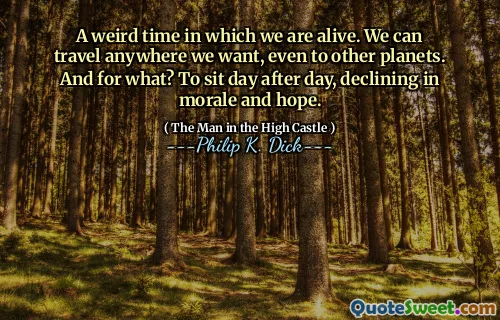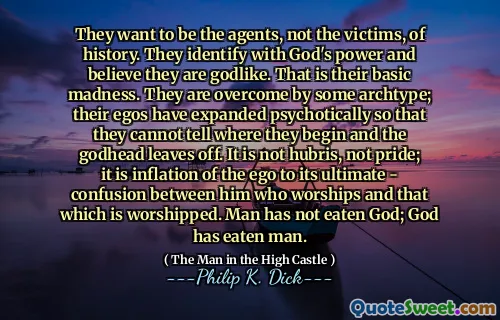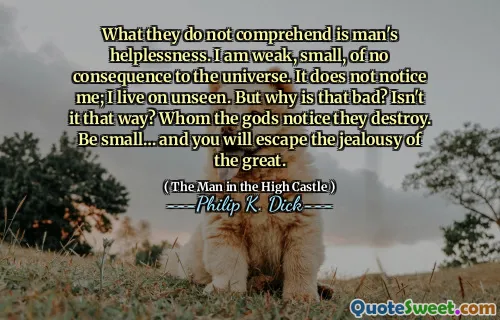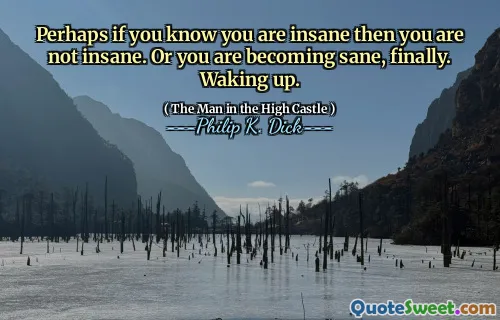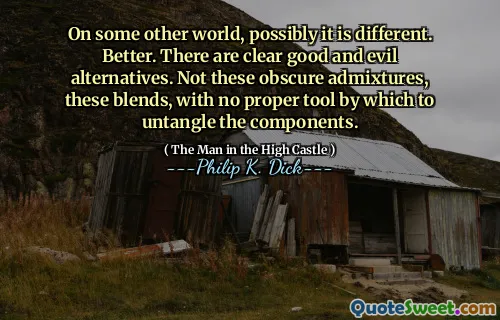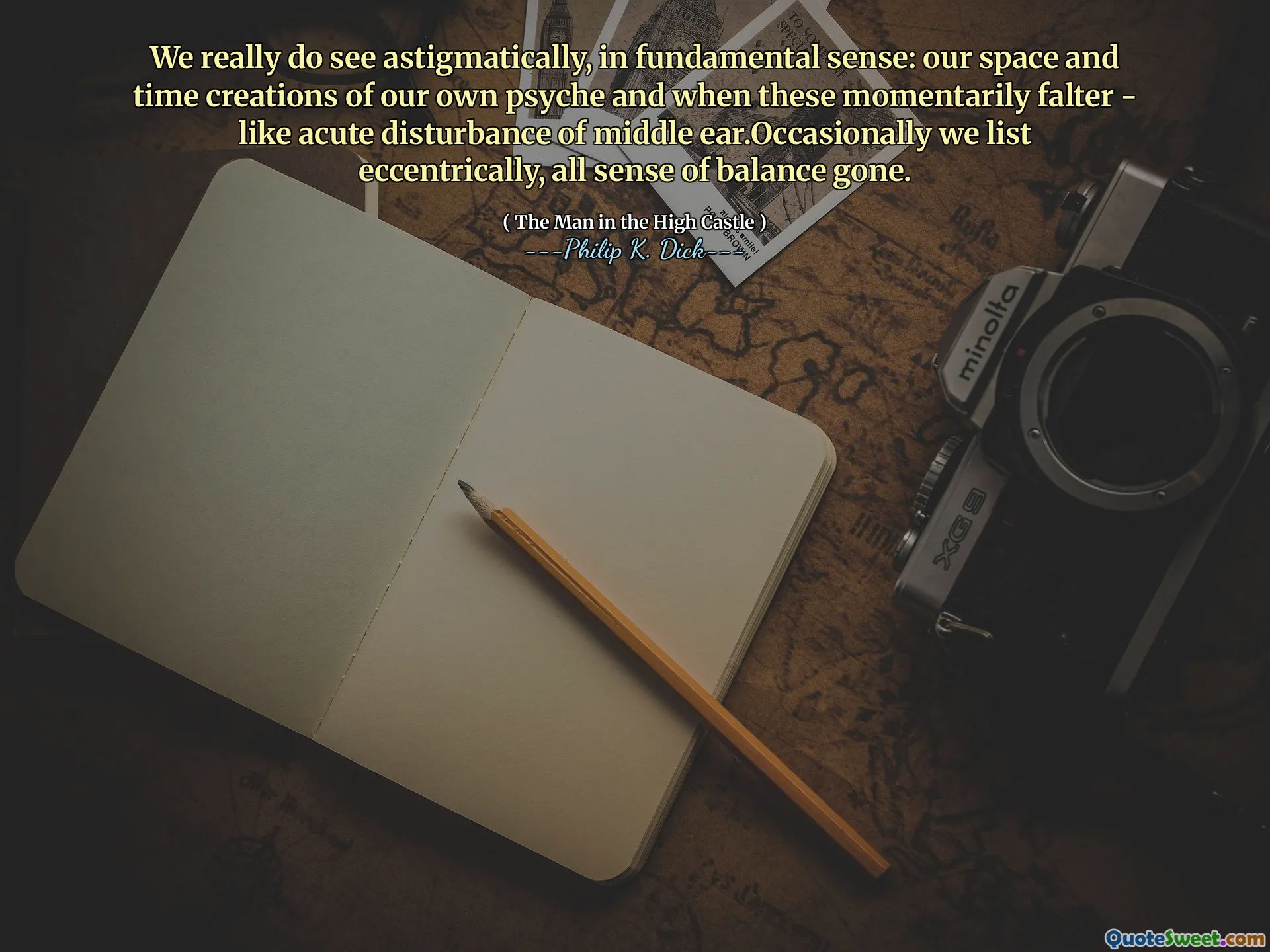
We really do see astigmatically, in fundamental sense: our space and time creations of our own psyche and when these momentarily falter - like acute disturbance of middle ear.Occasionally we list eccentrically, all sense of balance gone.
In "The Man in the High Castle," Philip K. Dick explores the concept that our perceptions of reality are shaped by our own minds. He suggests that our understanding of space and time is not absolute; instead, it is a construct influenced by our psyche. This means that when our mental state is disrupted, our grasp of reality can become skewed, similar to the disorientation caused by a disturbance in the inner ear.
This metaphor illustrates how easily our sense of balance and perspective can falter, leading to a distorted view of the world. Dick highlights the fragility of our perception, emphasizing that reality can feel eccentric and unsteady when we experience these psychological disturbances. It reflects a deeper philosophical inquiry into the nature of reality and how subjective experiences shape our understanding of the world around us.
